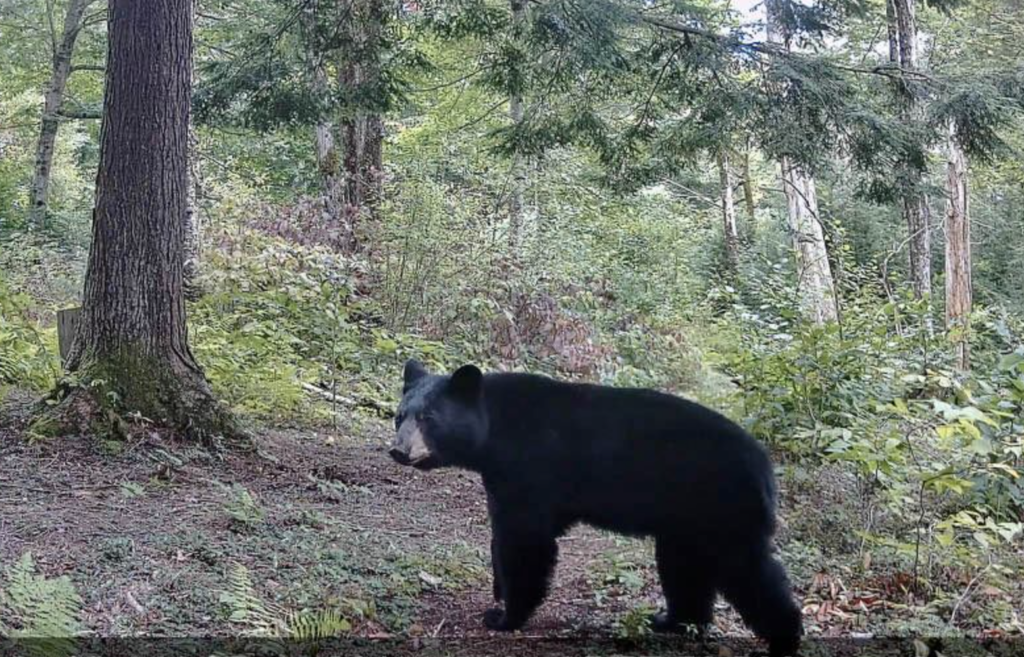Update On Amherst’s Family Of Bears

Ashfield bear. Photo Stephen Sauter
Source: Town Manager Report for March 21, 2022
The Animal Welfare Officer has been fielding calls about a family of bears who have made the town their home.
The State Black Bear & Furbearer Biologist Dave Wattles has been aware of the bears for some time and the mother bear has an electronic tracker. He said their presence does not represent a public safety threat. It is a very common occurrence, and in Northampton there have been resident bears for decades.
The reason they are so comfortable in yards and neighborhoods is because they spend so much time there taking advantage of all the foods we and our neighbors provide around our homes. The only way to prevent them from spending time there is for us, as a community, to remove the food sources. If that is done, the bears will revert to finding food in forests and wetlands.
Relocating the bears to the Quabbin area wouldn’t change anything. They would just return. It also isn’t such a simple thing to capture a family of four and relocate them. If they did not return, other bears would simply take their place.
There are increasing numbers of bears in the greater Amherst area and more and more bears are going to be using the neighborhoods in the coming years if the food sources aren’t removed. Wattles believes this does not serve the bear population well.
A side note, Wattles is aware of the yearling cub with a limp and has been monitoring that bear since mid-December. Bears with limps unfortunately, are very common in Massachusetts. Given the areas these bears move through, vehicle collisions are common. The good news is that that bears can cope with severe injuries if they can get around enough to find food. Wattles has seen video of the bear with a limp which he said is, relatively speaking, fairly mild. The cub has also been moving around for three months now, demonstrating that it can move around enough to find food. Because the bears have been active all winter his team has not had the opportunity to attempt to capture them in the den as they typically do in the winter. They have continued to be active due to the abundance of food.

Most bears in MA den From DEC-FEB though as the articles below indicate, a substantial food supply and/or warmer winters may result in some bears remaining active throughout the winter. MA wildlife experts warn that March is the month when bears will be emerging from their dens and that they will be hungry and that bird feeders and other backyard food sources are likely to attract bears at this time of year.
https://www.outdoors.org/resources/amc-outdoors/conservation-and-climate/how-changing-winters-in-the-northeast-affect-black-bears/
https://www.mass.gov/service-details/frequently-asked-questions-about-black-bears#:~:text=When%20do%20bears%20%E2%80%9Chibernate%E2%80%9D%3F,between%20February%20and%20mid%2DApril.
https://www.worcestermag.com/story/lifestyle/nature-wildlife/2020/11/18/living-black-bears/6294217002/